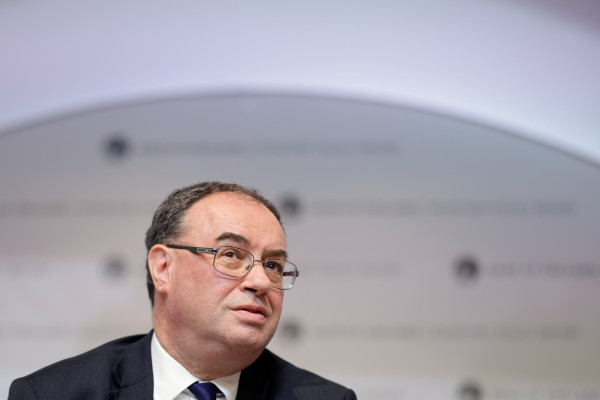

Bank of England governor Andrew Bailey has defended the delay in introducing the contingent charging ban during his time at the Financial Conduct Authority.
Speaking to the Public Accounts Committee yesterday (June 13), as part of its inquiry into the British Steel Pension scheme transfer saga, Bailey said the regulator did not take immediate action for the ban as it had to “work out what was a better approach”.
Bailey was head of the FCA from 2016-2020 at which time it came to light that thousands of steelworkers had been misadvised to transfer out of their defined benefit pension scheme.
During this time, firms and advisers were financially rewarded to recommend steelworkers to transfer their pension scheme under the contingent charging approach which means a client only pays for the advice if they go ahead with a transfer.
Speaking yesterday, MP Nick Smith said in January 2018 the work and pensions committee recommended a ban on contingent charging and asked Bailey why the FCA did not act on it.
Bailey said the regulator had to work out what was a better approach and that was not obvious at the time.
“It became obvious later,” he said. “The simple approach was saying don't do contingent charging, just charge over the lifetime of the contract. The evidence suggested that led to much higher charges.
“The idea of charging everybody whether you transfer out or not, I think would have had quite an effect of killing the pension freedoms.”
Bailey argued that the problem solved itself when workplace pensions were introduced as they had a charging structure attached to them, which he said the FCA saw as “reasonable".
“We adopted that change when that came into effect because we were looking for a reasonable and sensible alternative to contingent charging and that was it,” he said.
However, Smith said the ban did not come into force for another 15 months, during a period when the NAO report said 60 per cent of firms were using contingent charging in pension transfers.
The FCA proposed the ban in July 2019 and it only came into effect in October 2020.
“Well, I and my colleagues were never supporters, particularly of contingent charging. We were looking for a better method because we can see alternatives that were just as bad frankly,” Bailey said.
He added: "We were looking at the wider market and the evidence was the alternatives were associated with mis-selling as well."
The former FCA boss was also asked what he thought of the way the BSPS case was handled.
“Please don’t think the FCA was sitting on information and not doing anything as that is not the case," he said. “Consumer protection is a constant challenge because the world evolves around us constantly. The case we are looking at is the most complex piece of advice anyone can take.
“As a regulator there are relative judgments, and you have to focus your resources. In my opinion the Sipp [self-invested personal pension] issue was even bigger. At the time. If we could have got the targeted warnings out much earlier, we would have.”
In April, the Public Accounts Committee grilled the FCA and other regulatory bodies on their handling of the BSPS and their plans to introduce a consumer redress scheme.
What happened with BSPS?
During 2017, BSPS members were asked to make decisions about their pensions as part of a restructure of the scheme.
About 8,000 members transferred out of the scheme, with transfers collectively worth about £2.8bn.
But concerns about the suitability of the transfers were soon raised, leading to an intervention from the Financial Conduct Authority that resulted in a number of advice firms – key players in the debacle – stopping their transfer advice service, while others went out of business.
The debacle created a mountain of liabilities, which lawyers believe could end up costing the industry up to £300mn.
In September, the FCA and FSCS travelled to Swansea to meet steelworkers who could be due compensation but were met with mixed feelings, with some showing no interest while others claimed they were unable to book a place.
The City watchdog also travelled to Swansea in November to meet steelworkers about bringing possible claims against their adviser.
In April, the FCA began using emergency powers to prevent firms who advised members of the BSPS from disposing of assets to avoid paying compensation.
The regulator introduced these emergency rules without consultation in a policy statement and said the changes were in light of the risk that some firms will take steps to get rid of their assets if the rules were consulted on first, with the measures applying from April 27, 2022.
sonia.rach@ft.com
What do you think about the issues raised by this story? Email us on FTAletters@ft.com to let us know



